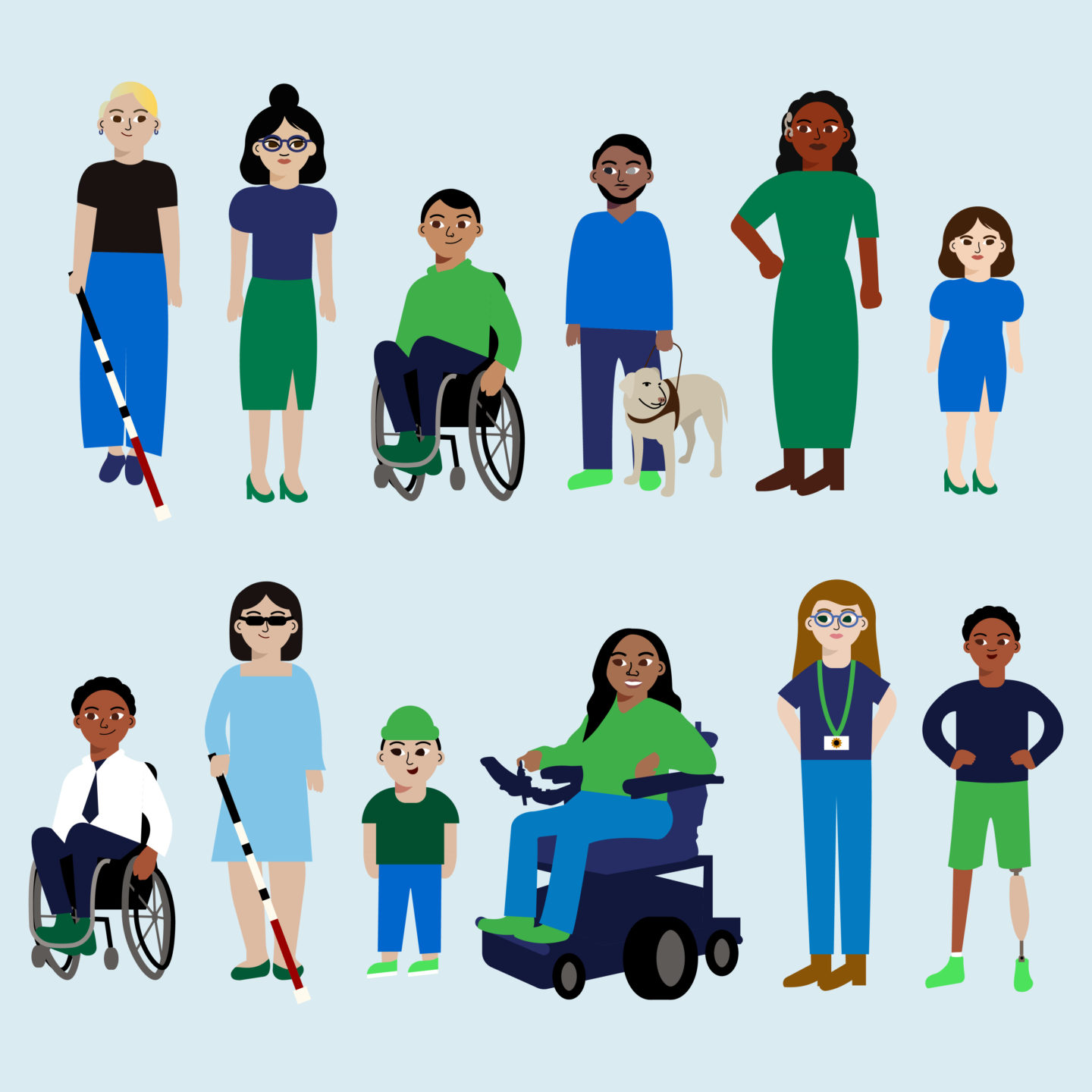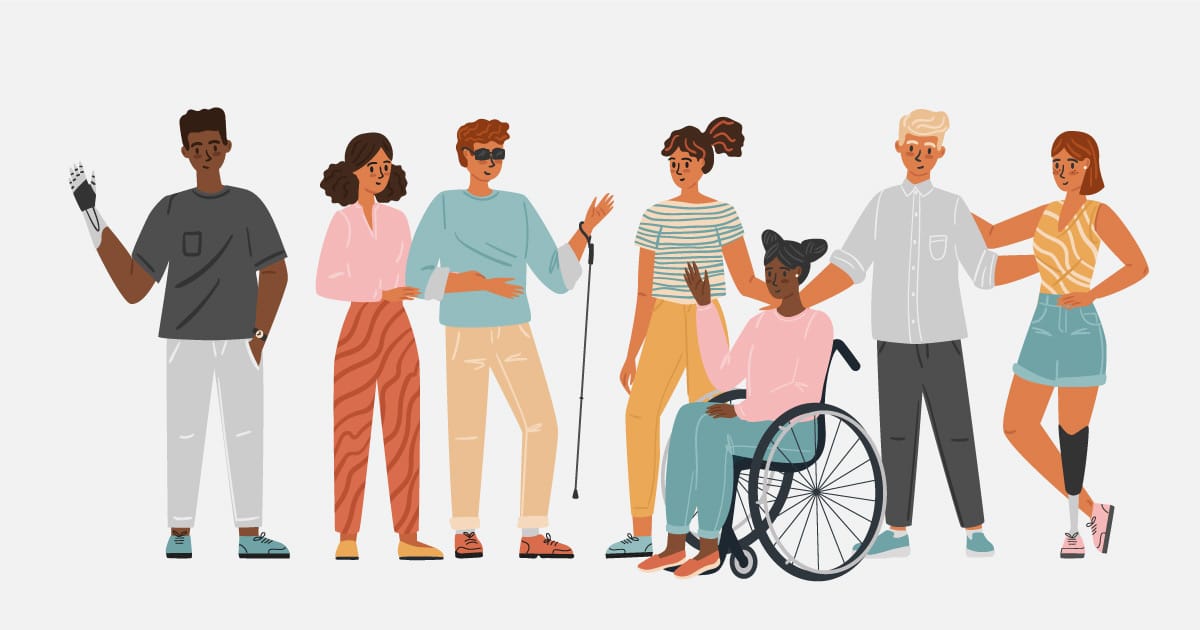What Disability Does Sherri Shepherd Have? Understanding Her Health Journey
When public figures share personal stories, it often opens up important conversations, doesn't it? People are often curious about the lives of those they see on screen, and sometimes, that curiosity extends to their health experiences. It's really quite natural to wonder about the challenges someone like Sherri Shepherd might face, especially when they appear so vibrant and full of life.
Sherri Shepherd, a familiar face from television screens and comedy stages, has, you know, been very open about aspects of her personal well-being. This kind of openness from someone in the public eye can actually help many people feel less alone when they are dealing with their own health situations. It provides a sort of connection, really, showing that everyone, no matter how famous, has their own path to walk.
This article will look into the health condition Sherri Shepherd has discussed publicly, specifically Type 2 Diabetes. We'll also explore what this means in the bigger picture of health and, in a way, how conditions like hers can be understood within the broader conversation about disability, as defined by global health organizations. It's a pretty important topic, so we'll cover quite a bit.
Table of Contents
- Sherri Shepherd's Personal Journey
- Understanding Type 2 Diabetes
- Sherri's Advocacy and Living Well
- Disability in a Broader Context: What "My Text" Tells Us
- Global Efforts for Health Equity
- Frequently Asked Questions
- Conclusion: A Path Forward
Sherri Shepherd's Personal Journey
Sherri Shepherd, a beloved personality, has, you know, shared quite a bit about her life, including her health. She has been very vocal about her experience with Type 2 Diabetes, a condition she was diagnosed with some time ago. Her willingness to speak openly about this has, in a way, really resonated with many people who are also navigating similar health challenges.
For Sherri, this diagnosis wasn't just a medical label; it was, you know, a moment that really prompted a significant shift in her life. She has often spoken about the initial feelings of being overwhelmed, but also the strong desire to take charge of her health. It's a journey that, like, many people experience, where a health revelation becomes a catalyst for profound changes in daily habits and outlook.
Her story, in some respects, highlights how a health condition can become a part of someone's public identity, especially when they choose to use their platform for awareness. It's a pretty powerful thing, actually, when someone famous decides to be so transparent about something so personal. This kind of sharing helps to demystify health issues and makes them, you know, a bit more relatable for everyone.
Personal Details and Biography
| Detail | Information |
|---|---|
| Full Name | Sherri Evonne Shepherd |
| Occupation | Comedian, Actress, Author, Television Personality |
| Date of Birth | April 22, 1967 |
| Place of Birth | Chicago, Illinois, USA |
| Notable Roles | Co-host of "The View," "Sherri" (talk show), various acting roles |
| Health Condition | Type 2 Diabetes |
| Advocacy | Diabetes awareness and management |
Understanding Type 2 Diabetes
Type 2 Diabetes is, actually, a very common health condition where the body doesn't use insulin properly, or it doesn't make enough of it. Insulin is a hormone that helps sugar, or glucose, get into your cells to be used for energy. When this system isn't working right, too much sugar stays in the blood, and that can cause all sorts of problems over time, you know, if it's not managed carefully.
This condition, in a way, often develops gradually. People might not even notice symptoms at first, or they might be quite mild. Things like increased thirst, frequent urination, constant hunger, or blurry vision can be signs. It's really important to get diagnosed early, because managing blood sugar levels is, like, pretty key to preventing more serious health problems down the line, such as heart disease, kidney issues, or nerve damage.
Managing Type 2 Diabetes usually involves a combination of things. It's often about making changes to what you eat, getting regular physical activity, and sometimes, you know, taking medications or insulin injections. For many, it's a continuous process of monitoring blood sugar and adjusting habits to keep things balanced. It's a condition that, in some respects, requires ongoing attention and commitment to one's well-being.
When we consider the definition of disability from "My text," which says, "Disability refers to the interaction between individuals with a health condition, such as cerebral palsy, cognitive impairment or depression, and personal and environmental factors," Type 2 Diabetes fits this description, actually. A person living with Type 2 Diabetes has a health condition. The challenges they might face in daily life, like needing to carefully plan meals, monitor blood sugar, or manage energy levels, are, in a way, interactions with their personal circumstances and the environment around them. This means that for some, Type 2 Diabetes can indeed present challenges that fall within a broad understanding of disability, especially when it significantly impacts their ability to participate fully in life without adjustments or support.
Sherri's Advocacy and Living Well
Sherri Shepherd has, you know, really become a strong voice for diabetes awareness. After her diagnosis, she made a very conscious decision to change her lifestyle, adopting healthier eating habits and getting more active. She often shares her personal journey, including her struggles and successes, to inspire others. This kind of open sharing is, in a way, incredibly valuable for people who might feel isolated or overwhelmed by their own diagnosis.
Her approach to living with Type 2 Diabetes is, you know, about empowerment. She talks about how she took control of her health, making choices that support her well-being. This includes, for instance, making dietary changes, incorporating regular exercise into her busy schedule, and working closely with her doctors. It's a pretty active role she plays in her own care, which is something many health professionals really encourage.
Sherri’s story, in some respects, shows that a health condition doesn't have to define someone completely. While it requires attention and management, she continues to thrive in her career and personal life. Her public sharing helps to normalize conversations around chronic conditions and encourages others to seek information and support. It's a very positive message, actually, about living a full life while managing a health condition.
Her experience also, like, highlights the importance of proactive health management. For someone with Type 2 Diabetes, staying on top of blood sugar levels and overall health is, pretty much, a daily commitment. This continuous effort can, in a way, be a significant part of one's life, and Sherri's transparency helps to shed light on that often unseen work. You can learn more about managing chronic conditions on our site.
Disability in a Broader Context: What "My Text" Tells Us
When we talk about disability, it's, you know, sometimes thought of in very specific terms, but "My text" gives us a broader, more inclusive definition. It explains that "Disability refers to the interaction between individuals with a health condition, such as cerebral palsy, cognitive impairment or depression, and personal and environmental factors." This means that a disability isn't just about the health condition itself; it's also about how that condition affects a person's life in the context of their surroundings and daily activities. So, too it's almost, a health condition like Type 2 Diabetes, when it creates barriers or requires significant adjustments in daily living, can certainly fall under this wider understanding of disability.
The information from "My text" also points out that "The global disability prevalence is higher than previous who estimates, which date from the 1970s and suggested a figure of around 10%," now estimating "over 1.3 billion people with disabilities." This figure, actually, shows just how many people worldwide are living with various health conditions that impact their lives. It's a really significant number, indicating that disability is a widespread human experience, not something rare or isolated. In member states of the WHO European Region, for instance, "6 to 10 out of every 100 people live with a disability," and "In total, an estimated 135 million people in Europe live with a disability." This data, in a way, underscores the sheer scale of the situation globally and regionally.
Understanding disability in this way helps us to see that it's not just about visible impairments. It includes a wide range of conditions, both physical and mental, that can affect how a person functions and interacts with the world. This perspective is, like, pretty crucial for promoting inclusion and ensuring that everyone has the opportunity to participate fully in society. "Disability inclusion is critical to achieving the sustainable development goals and global health priorities of universal health coverage, protection in health emergencies and." This quote from "My text" emphasizes that including people with disabilities is fundamental to improving health and well-being for everyone, which is, you know, a very important point.
The concept of "health equity for persons with disabilities," as mentioned in "My text," is also very important here. It means working to ensure that people with disabilities have the same opportunities to achieve their best possible health as anyone else. This often involves addressing barriers in healthcare, society, and the environment. It's about fairness and making sure that health systems are accessible and responsive to everyone's needs, which is, you know, a pretty big undertaking, but very necessary.
Global Efforts for Health Equity
The global community is, you know, really stepping up its efforts to promote health equity for people with disabilities. "My text" mentions that "The WHO Disability Health Equity Initiative was announced by Dr. Tedros at the Global Disability Summit in April 2025." This kind of initiative, actually, shows a very strong commitment from international organizations to address the challenges faced by people with disabilities around the world. It's a pretty significant step towards ensuring that everyone has access to the health care and support they need, regardless of their health condition.
The "WHO Disability Health Equity Initiative," unveiled on June 10th, is described as "a landmark global initiative to advance health equity for over 1.3 billion people with disabilities." This initiative is, like, designed to provide practical guidance for ministries of health on how to lead processes for disability inclusion. "The Guide for Action (or Disability Inclusion Guide for Action) provides practical guidance on the process that ministries of health should lead." This means that countries are being given tools and strategies to better support their populations with disabilities, which is, you know, a very practical approach.
These global efforts are, in some respects, about more than just medical care. They encompass ensuring that health emergencies protect everyone, including those with disabilities, and that data are collected in a way that shows who is affected. "Data that are disaggregated by disability status" is important for understanding the specific needs of different groups, which is, you know, a pretty vital part of planning effective health policies. The summit, organized by the governments of Jordan and, you know, other partners, underscores the collaborative nature of these worldwide endeavors. It’s a collective push to create a world where everyone can experience good health, which is, like, something we all want, right?
These initiatives, really, aim to create a more inclusive world where health is a right for all, not just a privilege. For individuals like Sherri Shepherd, who live with chronic conditions, these broader movements mean that there's a growing understanding and support system for navigating daily life with a health challenge. It's about making sure that the environment and systems around us are designed to be supportive and accessible, which is, you know, a very important goal.
For more detailed information on diabetes management and healthy living, you might want to check out resources from organizations like the American Diabetes Association or the World Health Organization. For example, the WHO has many resources on their website about diabetes and global health. And you can find out more about our work in community health on our site.
Frequently Asked Questions
Is Sherri Shepherd diabetic?
Yes, Sherri Shepherd has publicly shared that she lives with Type 2 Diabetes. She has been very open about her diagnosis and her journey in managing the condition, which is, you know, something many people find quite inspiring.
How does Sherri Shepherd manage her diabetes?
Sherri Shepherd manages her Type 2 Diabetes primarily through lifestyle changes. She has spoken extensively about adopting a low-carb diet, increasing her physical activity, and working closely with her healthcare team. It's a pretty dedicated approach to her health, actually, involving consistent effort.
What health issues has Sherri Shepherd discussed?
Sherri Shepherd has been most vocal about her experience with Type 2 Diabetes. She has used her platform to raise awareness about the condition, sharing her personal challenges and successes in managing it. This kind of transparency, in a way, really helps others who might be going through similar health journeys.
Conclusion: A Path Forward
Sherri Shepherd's openness about living with Type 2 Diabetes really offers a powerful example for many. Her story, in some respects, shows that managing a health condition is a journey, one that involves making informed choices and advocating for one's own well-being. It's a pretty clear demonstration of resilience and commitment to a healthier life, which is, you know, something we can all appreciate.
Her experience also helps us to see how individual health conditions connect to broader conversations about disability and health equity. As "My text" highlights, disability is about the interaction between a health condition and a person's environment. This perspective helps us to understand the varied experiences of people with chronic conditions, and why global efforts, like the WHO's initiatives, are so vital. It's about creating a world where everyone has the opportunity to live a healthy, fulfilling life, which is, like, the goal for all of us.
Understanding these connections can, you know, really help us to foster a more inclusive and supportive society. It encourages us to look beyond labels and to see the person, and the efforts they make every day to manage their health. It's a pretty important shift in perspective, actually, that benefits everyone. So, you know, let's keep these conversations going and continue to support initiatives that promote health and inclusion for all.

Resource Library - Disability:IN

Children's Disability Benefits | Social Security Chicago

Tiffany Yu: How To Build a More Disability-Inclusive Culture